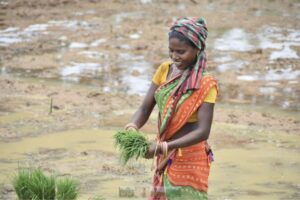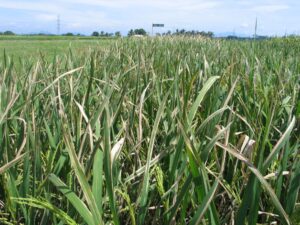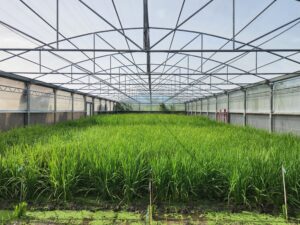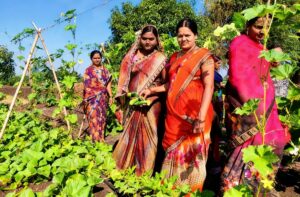
A total of 2,500 breeding lines were selected by members of the Hybrid Rice Development Consortium (HRDC) during its 8th annual meeting annual meeting at the International Rice Research Institute (IRRI) Headquarters on 25-27 March. Hybrid rice is a key technology for closing yield gaps as well as raising the yield potential, and through that increasing the income of rice farmers as well as that of consumers who depend on buying rice as a staple food. The selected IRRI hybrid rice germplasm, identified by 90 participants from the private and public sectors, will be used in rice breeding programs all over the world.
Dr. Fangming Xie. HRDC coordinator and senior scientist, also presented a proposal on heterotic study and hybrid rice training, research updates, and a report on the consortiumŌĆÖs multi-location replicated yield trials (MRYT). ┬ĀDr. Remy Bitoun, new head of IRRIŌĆÖs Public-Private Engagement Office, discussed proposed revisions in the HRDC guidelines while Charisse Grace Piadozo-Arlegui, HRDC Assistant Coordinator, delivered a general report.
In addition, scientists from IRRI and the Africa Rice Center (AfricaRice) presented the latest developments in hybrid rice breeding:
ŌĆó 3K genome and International Rice Informatics Consortium, Concept and Operation (Dr. Nickolai Alexandrov, IRRI bioinformatics specialist)
ŌĆó GRiSP Phenotyping Network (Dr. Michael Dingkuhn, IRRI crop physiologist)
ŌĆó Grain quality research update (Dr. Nese Sreenivasulu, head, IRRI Grain Quality and Nutrition Center)
ŌĆó Private and Public Partnership at IRRI (Dr. Remy Bitoun)
ŌĆó Hybrid Rice in Africa (Dr. Raafat El-Namaky, ┬ĀAfricaRice hybrid rice breeder)
The participants also visited IRRIŌĆÖs hybrid rice advanced yield trial and CMS demonstration plots, the phenotyping network field of the Global Rice Science Partnership, ┬Āthe newly built hybrid rice cold water facility, and the ConsortiumŌĆÖs ┬ĀMYRT ┬Āfield.
Learn more about IRRI (www.irri.org) or follow us on the social media and networks (all links down the right column).










